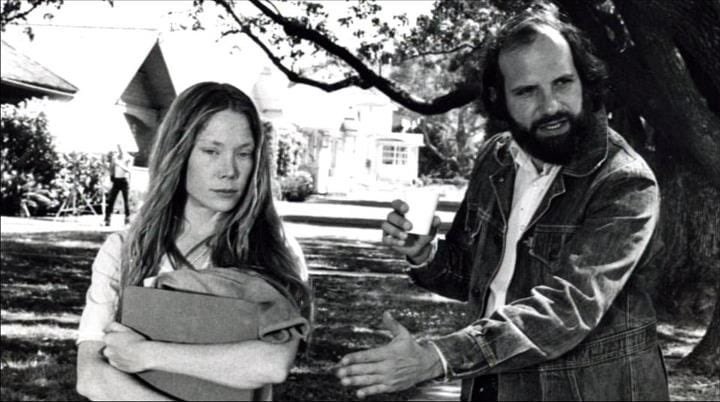KING HAS ADAPTED HIS OWN NOVEL 'LISEY'S STORY' FOR PABLO LARRAIN-DIRECTED SERIES

Slate's Jack Hamilton includes Brian De Palma's adaptation of Stephen King's Carrie as an example of King adaptations that mange to get around the fact that King's books are not easily given to screen adaptation:
The long, long list of unsatisfying King adaptations—of which Lisey’s Story is certainly among the better entries—may tell us something about King as a writer, and the shape of his remarkable career. Stephen King has been writing hugely popular and influential fiction for almost half a century, but for much of the early part of his career he was often dismissed as a mass-market genre writer. As this brief 1979 New York Times profile notes, King’s early books were paperback phenoms that barely registered on the hardcover bestseller lists. In the 1970s the popular genre fiction market was thoroughly entwined with the Hollywood development machine, and many of the biggest blockbusters of that decade—Love Story, The Exorcist, The Godfather—were based on what might today be called airport paperbacks. In 1974, the same year that King made his debut with Carrie, a first-time novelist named Peter Benchley published a salacious beach-read called Jaws, which was adapted into a movie the following summer. (The film did well.)From the start, King was seen as the kind of writer who writes books to get turned into movies, because that was the widespread conception of the publishing market to which he’d been consigned. King has always had a surfeit of ideas, and many of his horror novels have the sort of one-sentence synopses that seem like they’d make for killer movie material: a bullied teenaged outcast develops telekinetic powers; a writer battling alcoholism and writers’ block moves his family into a sinister old hotel; a malevolent force in the shape of a homicidal clown stalks a town from generation to generation. But unlike some of the writers he was lumped in with, King’s books never read like movie treatments, and many of the devices he frequently deployed—fragmentary narration and shifting perspectives, non-linear chronologies, a keen interest in his characters’ interiority—aren’t mainstays of conventional horror filmmaking.
The most successful adaptations of King’s horror work have found ways to get around this. To stay with the three examples above, in adapting Carrie in 1976, Brian De Palma and screenwriter Lawrence D. Cohen straightened out the narrative and dispensed with the novel’s patchwork form, a mix of conventional third-person narration interposed with excerpts from newspapers, academic volumes, and other fictional sources. Stanley Kubrick’s The Shining jettisoned much of the book’s focus on Jack Torrance’s struggles with alcoholism and his gradual descent into madness in favor of a haunted hotel story. (King famously hates Kubrick’s version of The Shining, complaining—and not wrongly—that Kubrick made Torrance into a standard horror-movie psychopath.) The first “Chapter” of Muschietti’s It was remarkably well-done and truly scary, but it also relegated the book’s “adult” sections—which in the novel are intertwined with the childhood sections—to a sequel, It: Chapter Two, which was ham-fisted and bloated, stumbling into many of the pitfalls the first chapter managed to avoid.
Most of the best King adaptations are drawn from material that is horror-adjacent, at most: The Dead Zone, “The Body,” “Rita Hayworth and the Shawshank Redemption,” Dolores Claiborne. Lisey’s Story isn’t strictly horror, but it doesn’t neatly reduce to a logline; it’s a great idea, but hardly a straightforward one. It’s one of those books that when someone asks you what it’s about, all you can tell them is to go read it. It’s also a moving rumination on stories and inspiration, and the places fiction writers get their ideas, a subject that King—one of the most absurdly prolific popular artists in history—has probably been asked about more than almost anyone on earth. It’s not an easy book to make a television series about, which is to its writer’s credit. Lisey’s Story’s failings aren’t an indictment of King the screenwriter, they’re a tribute to King the novelist.
Updated: Monday, June 7, 2021 8:23 AM CDT
Post Comment | Permalink | Share This Post



